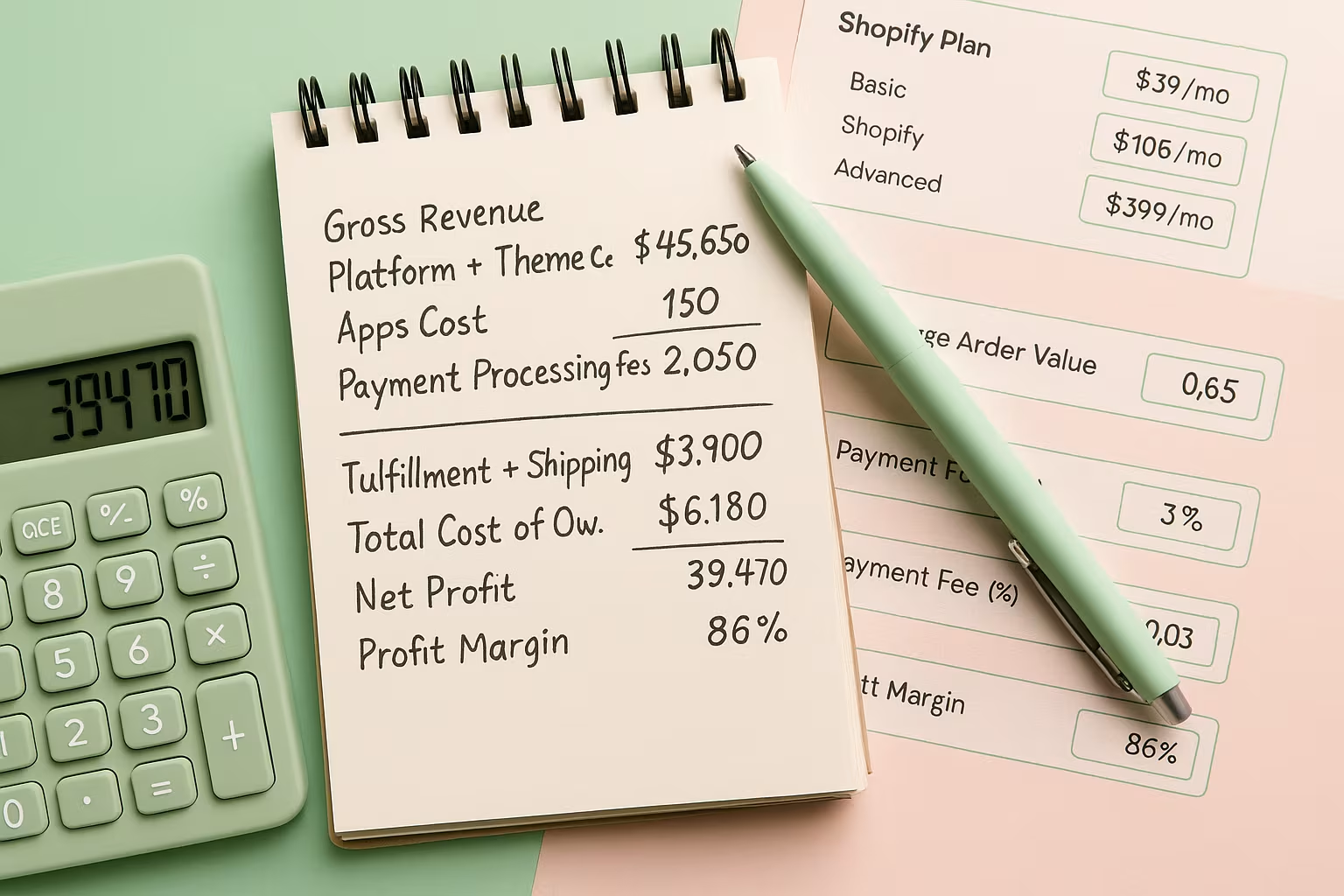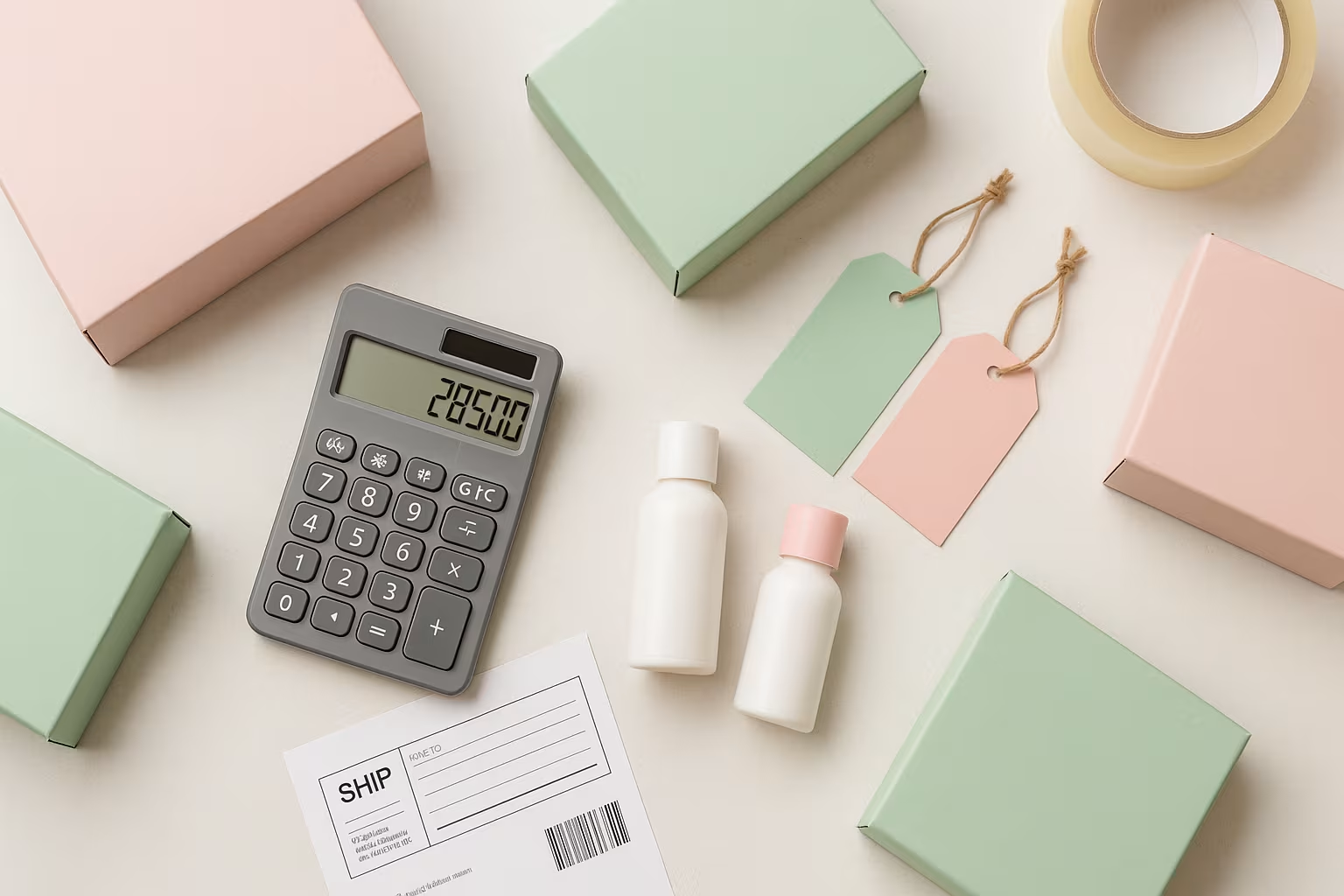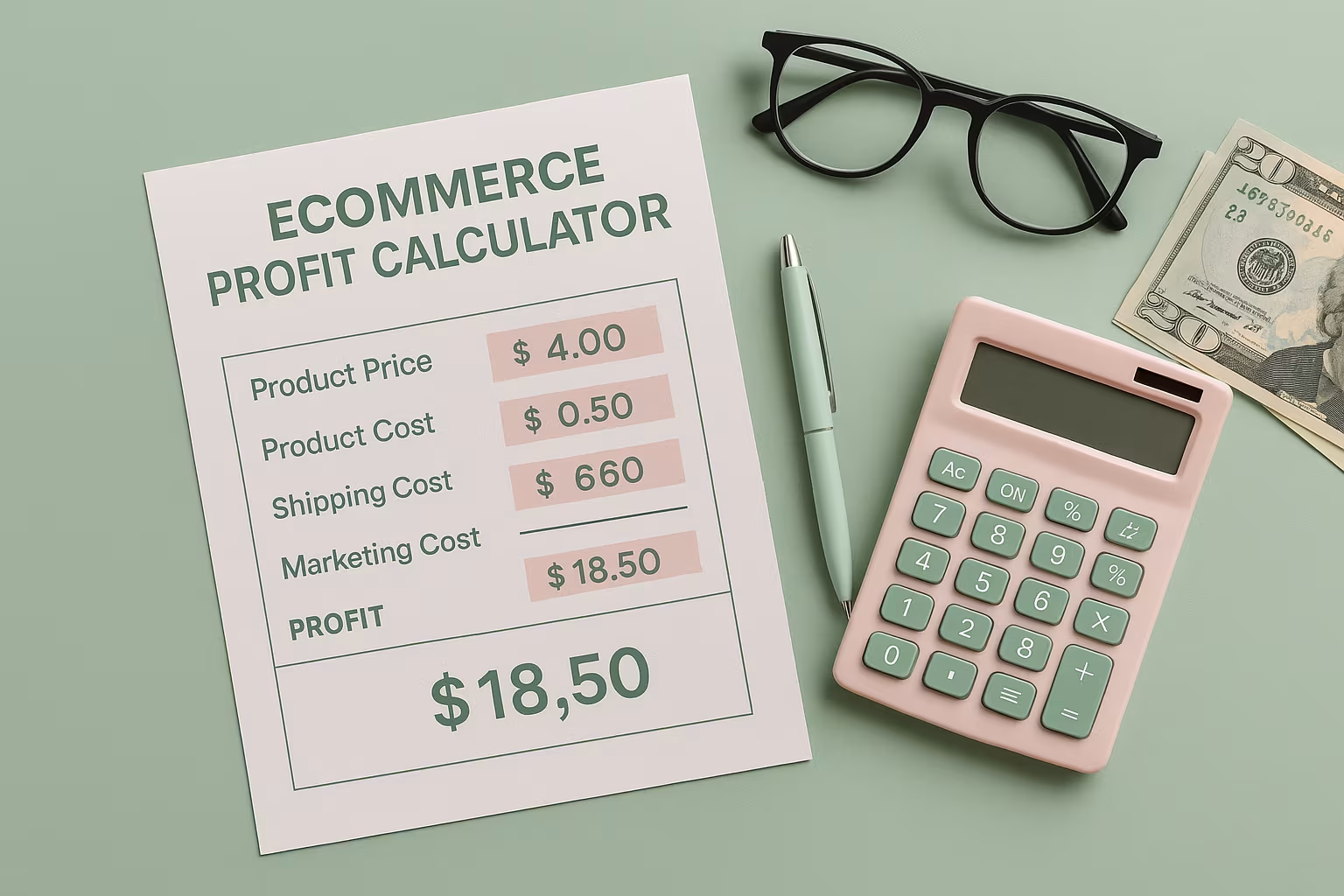.avif)
If your dream has always been to start your own beauty business, then look no further. Starting a cosmetics business can be a daunting process. It wouldn't be surprising if you said you felt overwhelmed and frustrated by the amount of information out there on the internet. That's why we've created this comprehensive guide on how to create a beauty brand.
Deciding to enter into the beauty world is a big step. It's an exciting time but it's important not to let feelings of stress and anxiety overshadow it.
Whilst the beauty industry is already saturated, we still see so many new companies emerging and experiencing huge successes–so why can't it be you?
The purpose of this article is to help you find your way in the cosmetics industry by following our simple step-by-step guide.
Taking the first step
Taking the first step is always the hardest part...and the scariest!
Having your own beauty brand is one thing, but having a successful one is another.
Think long and hard about why you want to do this. Running a business is no easy feat, and you'll need to commit to lots of hard work and dedication going forward.
Whether you want to start an ecommerce business, open up a brick-and-mortar store, or simply want some guidance on beauty marketing strategies, we've got it all covered.
If starting your own beauty business is something you really have a fire in your belly about, then let's get stuck in!
Key takeaways on how to launch your beauty brand
- Create a business plan. This plan will be your roadmap for success. Creating a strong business plan covering everything from estimated startup costs to your sales strategy. This will be the blueprint for your business going forward.
- Define your brand. Know your brand story inside out. Have a consistent brand story and communicate it to your customers to develop an authentic relationship with them.
- Market research and competitor analysis. Look to other brands that are already well-established within the beauty community. What are they doing, and why are they successful? How can you learn from them?
- Find your niche. Finding your place in the cosmetics industry is very important. How will your cosmetics business find a gap in the market and use it to stand out?
- Product packaging. Create distinctive product packaging. Think about the materials you will use and their effects on costs and the environment.
- The boring legal parts. Follow all legal requirements and investigate specific laws for your products and/or region.
- Sourcing suppliers. Look to sourcing manufacturing suppliers and ensure correct vetting is done. Find a supplier you trust and can build a relationship with.
- Marketing strategies. Have a strong social media presence. Work to develop strong marketing strategies across multiple platforms to reach your target market.
- Tracking progress. Monitor your progress and track what is working for you and what needs to change. Customer feedback is crucial for improving and scaling your business.
Creating a business plan
When creating your own cosmetics business, you must first sit down and tackle your business plan.
A business model is basically your business roadmap. It's a strategic plan that includes everything from your company name, the business goals and aims, and how you plan to grow and expand the business.
Begin by writing down your 'why'. Why is it important for you that this works? Next, write down all of your business goals for the future. Don't just think generically, be specific about your aims. Jot down exactly where you want the business to be in 6 months, a year, 5 years, 10 years, etc.
You can estimate the potential startup costs, along with any other financial expenses. Consider including your financial projections for the coming years, too. It'll help you paint a clear picture of the expected financial performance of the business.
A business plan is essential to organize how you're going to make your beauty business thrive in the global cosmetic market.
It'll help you set a solid foundation and roadmap for your company. It's a dynamic document that acts as a guide to keep you focused on your brand mission. It can also be used as a way to communicate your brand's venture to potential investors or lenders.
As your beauty business evolves, it's important to continue to review your plan regularly to keep you focused on the goals that you set.
When you take the time to create a strategic business model, you eliminate some of the rookie mistakes that many first-time business owners make.
Creating a business model doesn't have to be boring, you're allowed to have fun and set big goals–even if they scare you!
Don't be afraid to think big. You'd be amazed at what you can achieve when you aim high.
Aim for the moon, and you'll land among the stars
Defining your brand story
Having a brand story is key. Crafting a compelling narrative that resonates with your target audience is crucial for standing out from the crowd.
Your brand story should include the inspiration behind your products, how the brand came to fruition, and why you believe so strongly in your beauty products.
By defining your brands core values and mission statement, you can use this as a driving force behind your brand to propel it forward in a lucrative market. Your core values could focus on things like inclusivity, natural ingredients, or being cruelty-free.
Perhaps you were driven by a personal struggle with finding suitable beauty solutions. This narrative not only humanizes your brand, but also fosters a deeper connection with your audience, who might relate to your story.
By highlighting how your products address specific needs or desires, and explaining what sets your formulations, ingredients, or processes apart from competitors, you can show potential customers how it will enhance their lives.
For example, if your beauty brand focuses on cruelty-free products, highlight the meticulous process of sourcing and testing to ensure no animals are harmed in the making of your products.
A compelling brand story ensures your company has an identity that customers will remember, promoting brand trust and loyalty, and making your products an integral part of your customers' routines.

Market research and competitor analysis
A vital step when starting out with your cosmetic business is to conduct thorough market research.
Researching the market you are about to branch into is crucial if you want your beauty brand to exceed and stand up against some of the biggest names in beauty. When carrying out market research, you should look to other successful brands that you would like to emulate.
Start by analyzing current beauty trends. Identify any gaps in the market that you could fill with your products. Evaluate the market size and distinguish who your audience is and how you can make your products the solution to their problems.
By analyzing what your competitors are doing, and what they're doing well, you'll be inspired when tackling the ins and outs of your own business strategies. It will highlight any weaknesses other companies might have, which you can also learn from.
You can adapt your business plan and use the information gathered to your advantage. It could help you offer something unique in the cosmetic industry.
Finding your niche
The beauty world is a multi-billion dollar industry (wowza!) and it continues to experience massive growth.
If your dream is to have a successful brand, you've got to find your niche–something that is going to make your cosmetic business different from all the rest and entice your audience.
After analyzing market trends and researching your competitors, you have hopefully found a gap in the market that you think your products can fit into. Maybe there is space for a clean beauty brand providing natural SPF, targeted towards those with oily skin, or, you might use only sustainable materials for your products.
Whatever it may be, your niche is your unique selling point (USP). Use it as your ammo!
Refine your product offerings and brand messaging to align with your identified niche. It's extremely important to still bear in mind your own passions and expertise. Do not lose your authenticity in the process.

Product packaging
Picking the packaging for your beauty brand is just as important as providing a good product.
When thinking about your product packaging, you'll want to consider how your product will look sitting on a store shelf, or on the front page of your online store. Will it be eye-catching? Or will it be a minimal, aesthetic design?
The type of packaging you decide to use will impact things like costs, as well as the environment. The materials you use will have an effect on the costs, with the likes of sustainable materials usually being somewhat more expensive.
The shape and size of the packaging will impact how you store your products, and will dictate how much space you will need. For example, if the packaging is bulky, or oddly shaped, you may need to think about the financial impact of renting out storage space to hold your beauty products.
Not to mention, the costs of shipping the items to your customers will also be affected by your choice of packaging. So think long and hard, and choose wisely!

The legal parts
Ah yes, the fun part.
When setting up your beauty business, you'll need to ensure you are following all legal requirements, a.k.a filling out a lot of paperwork.
Some things to consider include ensuring compliance with local, state, and federal regulations, including health and safety standards specific to the beauty industry.
Familiarize yourself with the regulations and requirements for beauty products in your region. This may include adhering to safety standards, ingredient labeling, product testing, and obtaining necessary licenses or certifications.
You'll need to obtain a business license, register your business, either as a limited company or sole trader, have product liability insurance, and the list goes on. Be sure to do your due diligence when looking into all legal and FDA requirements.
This can be a somewhat overwhelming task for new business owners, which is why we have an alternative solution, which we will touch on in the next step.
Sourcing suppliers
Arguably one of the most challenging aspects of starting your cosmetic business is finding reliable suppliers.
Will you be doing it all on your own? If so, are you able to source a manufacturer who won't break the bank? Will you be able to foster a healthy relationship with them? This is a critical point to consider, especially if you’re starting out on a limited budget.
One of the easiest ways to handle all of this is by outsourcing manufacturing. With private label skincare manufacturing, they will take care of all aspects of formulating, packaging, and fulfilling your products.
I know, I know. You're probably thinking:
"What's the catch?"
Well, there is none.
Enlisting the help of a white label company not only takes away a lot of the stress, but it means you will have more time to focus on other aspects of the business. As well as cutting costs, it also cuts the time it takes to get your products legally approved, meaning you can start selling right away. Hooray!
Companies like Supliful, who are the leading dropshipping company, allow beauty entrepreneurs to scale their cosmetics company without the added hassle of complicated backend operations.
Whatever method you decide to use, do what works for you. Do your research and find a reputable company you can trust.

Marketing strategies
Crafting a robust marketing strategy for your beauty brand is the most efficient way for you to reach your target customers and build your brand awareness.
You might already be tech-savvy and well-able to create a comprehensive marketing strategy. If not, you might need to enlist the help of someone who knows what they're doing.
Thanks to social media, we're able to promote our businesses for free and reach every corner of the globe. Developing a strong online presence and getting your brand out there is the perfect way for a new business to attract the attention of fresh customers.
Your marketing strategy is how you're going to communicate to your target audience why they need your products in their lives. How you choose to communicate this message, is up to you.
Some brands prefer to create content that is visually and aesthetically pleasing, from their product photo shoots to their social media grid posts.
Others prefer to use their online presence to generate informative content, such as how-to videos using their beauty products, or Q&As about their products' ingredients and manufacturing.
While social media influencers are more powerful than ever, many brands utilize influencers' already loyal following, to generate awareness around their company. Ensure to work with influencers who resonate with your brand and who you see as a good fit.
Other forms of advertising that can be used include email marketing, targeted ads, and SEO. If a lot of those words mean absolutely nothing to you, fear not! You can catch up on our other article here, where we cover everything you need to know about marketing strategies.

Creating a great strategy can be time-consuming, but the rewards will be rife. Don't hold back or be afraid to try something new. Your strategy can change as you figure out what tactics work for your cosmetics business and which ones don't.
It's all a learning curve, after all.
Tracking your progress
If you want your cosmetic business to thrive in the global market, tracking your progress is the best way to achieve this.
A business would be nothing without its customers. If you want to achieve success of the highest level, you need to look to your target audience and listen to what they have to say.
Make sure your customer service is top-notch. Respond promptly, and in a professional manner. It's crucial to keep them happy if you want to retain customers.
Gather feedback, whether that's through social listening, conducting surveys, or simply analyzing reviews. Use constructive criticism to help you create the best products for your target audience.
Stay on top of the latest trends in the beauty industry, continuously tracking and predicting future trends. It's always changing!
Be prepared to change your plan according to customer needs.
Final thoughts
Starting your own cosmetics business isn't all sunshine and roses.
If you want your beauty brand to be as successful as some of the biggest names out there, it's paramount that you first sit down and take the time to plan out all aspects of the company.
This isn't a plan that has to be set in stone, but instead one that you can use as an actionable roadmap, that can be altered and edited as the company expands, and as you continue to learn the ins and outs of business life.
It's definitely possible to start a cosmetic business with little to no money or previous experience. To optimize your chances of success, you’ll have to thoroughly research the beauty industry to find out where you see your brand fitting in.
Finding the right marketing strategy can catapult your cosmetic business to new heights, so it’s important not to underestimate the value of a strong online presence.
You're about to embark on a multi-faceted journey, full of hard work, dedication, and careful planning. Just don't forget to have fun along the way!
FAQ
Related blogs

Subscription Cost Calculator: The Tool Every E-commerce Brand Needs




